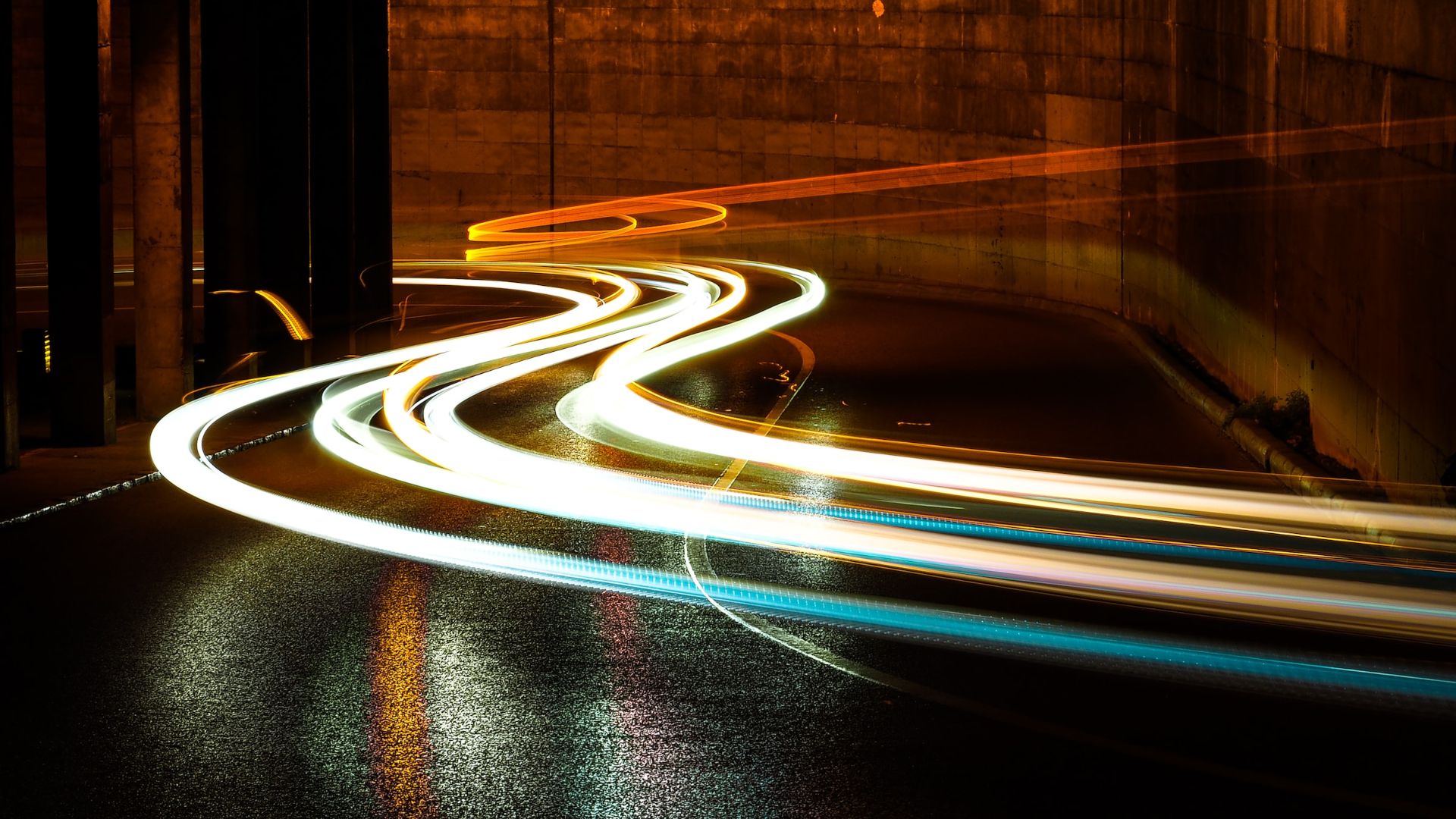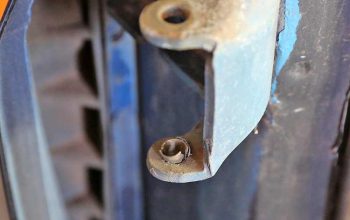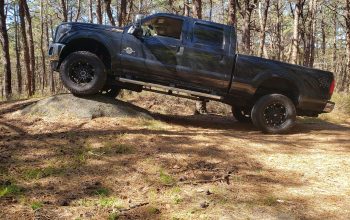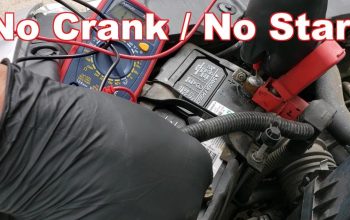Car jerks when slowing down indicates a potential issue with the transmission or fuel system. This problem can result from clogged fuel injectors or a faulty throttle position sensor.
Experiencing jerking in your car when you slow down can be a frustrating and concerning issue. Not only does it disrupt the smoothness of the overall driving experience, but it could also signal underlying problems with your vehicle’s transmission or fuel system.
Whether you’re driving a manual or automatic car, understanding the possible causes and solutions for this jerking sensation is crucial for maintaining the optimal performance of your vehicle. We will delve into the various reasons why your car might jerk when slowing down and provide insights on how to diagnose and potentially fix the problem. So, let’s get started and unravel the mystery behind this unsettling car behavior.
Understanding The Basics Of Car Jerking
Car jerking can be a frustrating experience for any driver. It occurs when your car starts to jerk or shudder unexpectedly, particularly when slowing down. This issue can be caused by a variety of factors, from mechanical problems to electrical issues. By understanding the potential causes of car jerking, you can identify and address the problem before it becomes worse.
| Causes of Car Jerking | Possible Damage |
|---|---|
| 1. Fuel System Issues | Reduced fuel efficiency, engine misfires |
| 2. Ignition System Problems | Difficulty starting the car, engine misfires |
| 3. Transmission Troubles | Slipping gears, difficulty shifting |
| 4. Vacuum Leaks | Poor engine performance, increased fuel consumption |
| 5. Faulty Sensors | Check Engine Light illuminated, incorrect data readings |
If you experience car jerking, it is important to address the issue promptly to prevent potential damage to various components of your vehicle. Ignoring the problem could lead to more serious and costly repairs down the line. Consult with a qualified mechanic to diagnose and fix the underlying cause of the car jerking, ensuring smooth and safe driving experiences.
Common Issues That Cause Car Jerking
Car jerking when slowing down can be caused by a variety of issues. One common problem is fuel delivery problems. This can include issues with the fuel pump, clogged fuel filters, or a faulty fuel pressure regulator.
Another possible cause of car jerking is ignition system malfunctions. Problems with spark plugs, ignition coils, or the ignition control module can lead to jerking when slowing down.
Transmission issues can also result in car jerking. A worn-out clutch, a faulty torque converter, or problems with the transmission fluid can all cause jerking when slowing down.
| Fuel delivery problems | Ignition system malfunctions | Transmission issues |
|---|---|---|
| Fuel pump issues | Spark plug problems | Worn-out clutch |
| Clogged fuel filters | Ignition coil malfunctions | Faulty torque converter |
| Faulty fuel pressure regulator | Ignition control module problems | Transmission fluid issues |
Diagnostic Steps To Identify The Problem
When your car jerks while slowing down, it could indicate a problem that needs to be addressed. Here are a few diagnostic steps you can take to identify the issue:
Check Engine Light Codes
One of the first things to do is to check for any stored check engine light codes. These codes can provide valuable information about the potential problem. Using an OBD-II scanner, you can retrieve the codes and decipher their meanings.
Conducting A Test Drive And Observing The Symptoms
A test drive is essential to observe the symptoms firsthand. Pay attention to the behavior of the car when slowing down. Note if the jerking occurs during braking, downshifting, or coasting. Take note of any other accompanying symptoms, such as rough idling or hesitation.
Inspecting Fuel And Ignition Components
Issues with fuel and ignition components can lead to jerking while slowing down. Check the fuel filter, fuel injectors, spark plugs, and ignition coils for any signs of wear or malfunction. Ensure they are clean and functioning properly. Consider testing the fuel pressure and inspecting the airflow sensors as well.
Fuel Delivery Problems
Fuel delivery problems can cause a car to jerk when slowing down. Two common culprits in these situations include clogged fuel injectors and a dirty or failing fuel filter. Over time, fuel injectors can become clogged with debris, affecting their ability to deliver a steady flow of fuel. This can result in a car jerking during deceleration. Similarly, a dirty or failing fuel filter can restrict fuel flow to the engine, leading to a rough idle and jerking motion when slowing down. Another potential cause of jerking when slowing down is a malfunctioning fuel pump. When the fuel pump fails to deliver a consistent supply of fuel, it can result in a loss of power and a jerking sensation. If your car is experiencing these symptoms, it is important to have a professional mechanic inspect and diagnose the fuel delivery system to determine the root cause of the issue.
Ignition System Malfunctions
Car jerking when slowing down can be a result of various ignition system malfunctions. One common issue is worn-out spark plugs, which may not provide a consistent spark to ignite the fuel-air mixture. This can cause misfires and result in jerking movements. Another possible cause is faulty ignition coils, which can lead to uneven engine performance and jerky movements when decelerating. Additionally, a failing ignition control module can disrupt the timing and firing of the spark plugs, leading to rough idling and jerking when slowing down. If you are experiencing these symptoms, it is essential to have a professional mechanic diagnose and repair the ignition system to restore smooth and reliable performance.
Transmission Issues
Car jerking is a common issue that many drivers experience when slowing down. One possible cause of this problem is low transmission fluid. When there is not enough fluid in the transmission, it can lead to friction and overheating, resulting in a jerking sensation. Another potential culprit is a faulty torque converter. The torque converter is responsible for transmitting power from the engine to the transmission, and if it is malfunctioning, the car may jerk when slowing down. Finally, malfunctioning transmission sensors can also cause the car to jerk. These sensors monitor various aspects of the transmission’s operation, and if they are not functioning properly, it can result in jerky movements. If your car is experiencing jerking when slowing down, it is important to have it checked by a professional to diagnose and address the underlying issue.
Diy Fixes For Car Jerking
If your car jerks when slowing down, it can be frustrating and unsafe. Fortunately, there are several easy DIY fixes you can try to resolve the issue.
Cleaning fuel injectors: Over time, fuel injectors can become clogged with debris, affecting your car’s performance. Using a fuel injector cleaner can help remove these deposits and improve fuel flow.
Replacing spark plugs: Worn or faulty spark plugs can cause your car to jerk. Check your spark plugs regularly and replace them as needed to promote smooth acceleration and deceleration.
Checking and changing transmission fluid: Insufficient or dirty transmission fluid can cause jerking when slowing down. Check your vehicle’s owner’s manual for instructions on how to properly check and change the transmission fluid.
By cleaning fuel injectors, replacing spark plugs, and maintaining the transmission fluid, you can address the jerking issue in your car. Remember to consult a professional mechanic if the problem persists or if you are unsure about performing any DIY fixes.

Credit: rerev.com
When To Seek Professional Help
Car jerking when slowing down can be a concerning issue that may require professional help. If you experience persistent or worsening jerking, it is advisable to seek the expertise of a qualified mechanic. Ignoring this problem can lead to further damage to your vehicle and may result in costly repairs.
If you notice multiple warning lights illuminated on your dashboard while the jerking occurs, it is a clear indication that the situation requires immediate attention. These warning lights may indicate various issues, such as engine misfires or transmission problems, which should not be ignored.
Aside from the potential mechanical issues, safety should also be a top priority while driving. Car jerking can make it difficult to maintain control of your vehicle, especially when slowing down. This can jeopardize your safety and the safety of other motorists on the road. Therefore, it is crucial to address this problem promptly to ensure a safe driving experience.
Frequently Asked Questions For Car Jerks When Slowing Down
Why Does My Car Jerk When Driving Slow?
Your car may jerk when driving slow due to various reasons such as a faulty transmission, clogged fuel injectors, or worn-out spark plugs. It is recommended to have a professional mechanic diagnose and fix the issue to ensure smooth driving.
Is Car Jerking A Transmission Problem?
Yes, car jerking can be a transmission problem.
Why Does My Car Jerk Back When I Stop?
Your car may jerk back when stopping due to issues such as a clogged fuel injector, a faulty spark plug, or a malfunctioning transmission. These problems can disrupt the smooth flow of fuel or cause misfires, leading to jerking. Consult a mechanic to diagnose and fix the issue.
Why Does My Car Jerk When Slowing Down?
Car jerking when slowing down can be caused by various issues such as a problem with the fuel system, transmission, or engine. It’s crucial to diagnose the root cause to prevent further damage and ensure your safety on the road.
Conclusion
It’s crucial to address the issue of car jerking when slowing down promptly to ensure a smooth and safe driving experience. By identifying the possible causes such as transmission problems, engine issues, or faulty spark plugs, car owners can take appropriate action.
Regular maintenance, including fluid checks and timely replacement of parts, plays a vital role in preventing or resolving this problem. Remember, seeking professional help is always recommended to accurately diagnose and fix the issue. Drive safely and enjoy a smooth ride!



